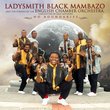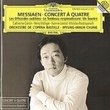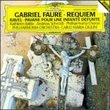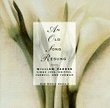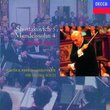| All Artists: Klaus Kuttler, Carl Orff, Balduin Sulzer, Franz Welser-Möst, Munich Radio Orchestra, Lisa Larsson, Eva Maria Nobauer, Dagmar Schellenberger, Lothar Odinius, Robert Swensen Title: Carl Orff: Catulli Carmina/Trionfo Di Afrodite Members Wishing: 0 Total Copies: 0 Label: Angel Records Release Date: 1/16/1996 Genre: Classical Styles: Opera & Classical Vocal, Forms & Genres, Concertos Number of Discs: 1 SwapaCD Credits: 1 UPCs: 724355551726, 072435555172 |
Search - Klaus Kuttler, Carl Orff, Balduin Sulzer :: Carl Orff: Catulli Carmina/Trionfo Di Afrodite
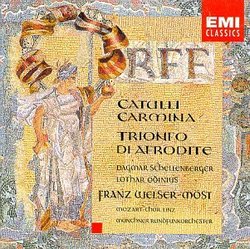 | Klaus Kuttler, Carl Orff, Balduin Sulzer Carl Orff: Catulli Carmina/Trionfo Di Afrodite Genre: Classical |
Larger Image |
CD DetailsSimilarly Requested CDs
|
CD ReviewsA Great Performance of the Little Heard Carl Orff D. A Wend | Buffalo Grove, IL USA | 07/11/2002 (5 out of 5 stars) "It may come as a surprise, if not disappointment, to many that Carl Orff wrote his Cartulli Carmina and Trionfo di Afrodite (Triumph of Aphrodite) as the second and third parts of a triptych, after the boisterous fun of Carmina Burana. By comparison, the latter works have never had the popularity of Carmina Burana. However, if as one listens to Catulli Carmina and the Trionfo over time an appreciation of Orff's different orchestration and use of voices can be appreciated. This is actually more typical of Carl Orff than Carmina Burana.Catulli Carmina is a play within a play; it consists of a prologue, three short acts and an epilogue. At the start, young couples profess their undying love only to be ridiculed by a group of old men who know better. They exhort the young people to watch a play on the experiences of Catullus and Lesbia, to know what love is all about. The play commences with Catullus' famous Odi et amor poem and follows his affair with Lesbia, whom he rejects at the end of the play. All of this is to no avail, as the young couples merely profess their undying love for each other to the chagrin of the old men. So, the views of romantic love and sexual attraction, and their views between young and old, remain unchanged. The orchestration is quite sparse: four pianos and percussion.The Trionfo di Afrodite is another dramatic performance of love from the perspective of marriage rites from ancient Greece. The texts set to music include Catullus' wedding songs, some of the fragments of Sappho and a chorus from Hippolytus by Euripides. There is a distinct touch of ritual in this piece where the Chorus Leader (bass Alfred Reiter) declaims his lines with the rest of the chorus replying to him. The climax comes with the appearance of Aphrodite herself. Orff used a large orchestra with three pianos but the voices are of highest importance. This recording by Franz Welser-Most is among the best and is superbly recorded. For someone wanting to give further investigation to the music of Carl Orff, look no further." Terrific recording of Carl Orff's forgotten masterpieces D. A Wend | 01/02/1999 (5 out of 5 stars) "Catulli Carmina and Trionfo di Aphrodite are the second and third cantatas making up Orff's triptych, which he gave the collective title Trionfi. Carmina Burana has all but eclipsed both of these works but they are both very deserving of a wider audience. Catuli Carmina is a play with a play with a group of young men and women professing their undying love for each other being watched by world-wise old men. The old men laugh at the presumption of "undying love" and recommend the young people take in the experince of Catullus (the 1st century B.C.E. Roman poet)and his unhappy love affair with Lesbia. They all watch a play drawm from the poems of Catullus are sung by the poet himself and his love. But are they convinced?The Trionfo di Aphrodite examines marriage through the eyes of the ancients. Orff set poems of Sappho, Catullus and a portion of Euripides' Hippolytus to music. The work proceeds from a wedding procession and ceremony to an ecstatic appearance of Aphrodite herself. The leader of the chorus is prominent in a speaking part that sounds like the invocation of ancient mysteries. The beauty of the music comes in the marriage of words and the colors of the orchestra.Repeated hearings of these works are very rewarding and the subtlties of Orff's orchestration need to be heard more than once to take in the colors he lends to the words. For me, these works are a celebration of ancient literature and civilization. Carl Orff brings us into his idea of the ancient world and he succeeds brilliantly." An Orff Masterpiece! 07/03/2007 (5 out of 5 stars) "After first hearing Carmina Burana (with Eugene Ormandy and the Philidelphia Orchestra), I thought, what else? Can anything top this? Well, I don't think that the selections on this Cd quite equal Carmina Burana, but they are definately worthy of attention.
These highly neglected works are true Orff treasures. With the success of Carmina Burana, Orff was asked to write another such work. So, he composed Catulli Carmina. It is scored for 4 pianos, full choir, and a huge battery of percussion instruments. However, despite the absence of wind and string instruments, it is still very colorful. This is the most operattic of all the works in the Trionfi (Carmina Burana, Catulli Carmina, and Trionfo di Afrodite). The lyrics to the first and last movement were written by Orff, wheras the contained parts were by Catullus himself. The story tells of Catullus and his love for the prostitute, Lesbia (a woman who appears in much of his poetry). The excitement and drama of this work make it very enjoyable. Trionfo di Afrodite is much better then Catulli Carmina, seeing as it has a full orchestra to accompany it. It tells of anciet marriage and love traditions, the youthful energy of love, and, of course, the goddess of love herself, HYMEN!!!! Ah, yes, Orff was great at the pagan stuff. Especially in the Invocation movement, in which the youths all praise Hymen, chanting in rythmic, bitonal passages. I love the last movement, in which Afrodite appears herself, and they all scream at the end! If you enjoyed Carmina Burana, you must buy this Cd. The performance by Munich Radio Symphony Orchestra is excellent. They have recorded many of Orff's works, and Franz Welser-Most is a reputable conductor, and I was pleased with the sound quality of this disc. Buy it! Move along with the barbaric beauty and enjoy the music of one of the 20th century's greatest composers." |

